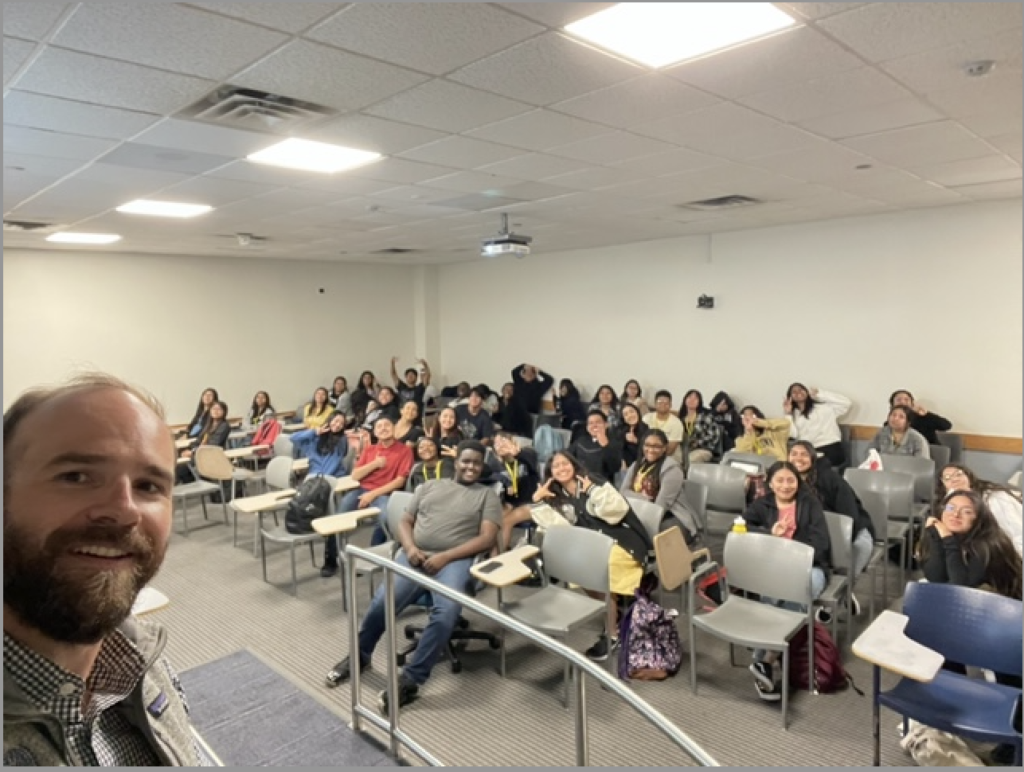Georgetown is a large enterprise and relies on a constellation of mission-driven units to animate the mission and values of the University. So much of this animation rests on the Office of Mission and Ministry and Campus Ministry, who provide critically important spiritual care to the community in ways that further meaning, belonging, and purpose. These offices are understandably associated with the Spirit of Georgetown and a team of chaplains and ministry staff carry much of the work of mission integration across the campuses. But there are other key partners that realize Georgetown’s Jesuit mission and values and do so in explicit ways that invite deeper engagement with the larger meaning and purpose of Jesuit education.
One of these key partners is Georgetown’s Center for Social Justice Research, Teaching & Service (CSJ). The organization’s mission clearly expresses its mission-serving purpose: “In order to advance justice and the common good, CSJ promotes and integrates community-based research, teaching and service by collaborating with diverse partners and communities.” The statement registers as a distinctive element of Jesuit education, which has been clear about the social justice implications of teaching and learning in this tradition.
Current Jesuit Superior General Arturo Sosa, for example, through a global discernment process, has made this commitment a pillar of the four Universal Apostolic Preferences, an orienting set of principles that should guide all Jesuit works across the world. One of these four, “Walking with the Excluded,” invites each Jesuit institution to “walk with the poor, the outcasts of the world, those whose dignity has been violated, in a mission of reconciliation and justice.” The Association of Jesuit Colleges and Universities (AJCU) makes this commitment to justice one of their seven guiding characteristics of all Jesuit schools. AJCU Characteristic 3, “The Pursuit of Faith, Justice & Reconciliation,” challenges Jesuit institutions to actively “respond to the most morally urgent issues of our times in ways that reflect the deepest sources of the Jesuit, Catholic tradition; anchor healing in truth; and recognize the fulfillment of justice as the forging of right relationships.” At Georgetown, the CSJ is centrally involved in realizing these global and national Jesuit priorities.
The start of the fall semester has coincided with several global crises. These disasters have included wildfires in Maui, earthquakes in Morocco, and floods in Libya. In each of these instances, the University community has received a broadcast email with resources for support and information about how to respond to these situations of profound human need. You can review CSJ’s dedicated responses to each crisis here. Every notification includes opportunities to support disaster relief by tapping CSJ’s network of Catholic, Jesuit, and mission-based partners that are serving in affected regions. At moments of global challenge and disaster, it is a consolation that CSJ is in a position to help members of the Georgetown community respond to human suffering in a timely way.
Responses to humanitarian disasters is only one part of the CSJ’s portfolio of programs and resources. SCS students, faculty, and staff should consider all of the opportunities made available for greater engagement. Of particular importance in the Downtown Campus is the work of CSJ’s Homelessness Outreach Meals Education (HOME) program. This is a comprehensive effort to promote human dignity and respect for people experiencing homelessness through outreach, education, and direct service. In the coming months, there will be more information about how the SCS community can become more involved in HOME efforts in the Downtown.






